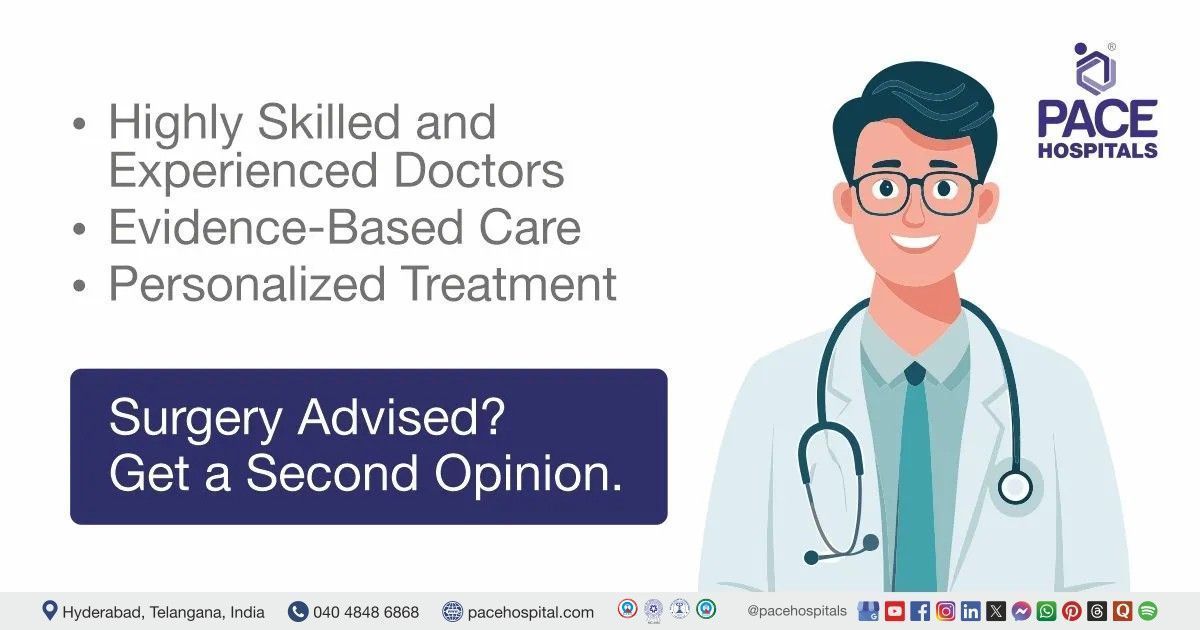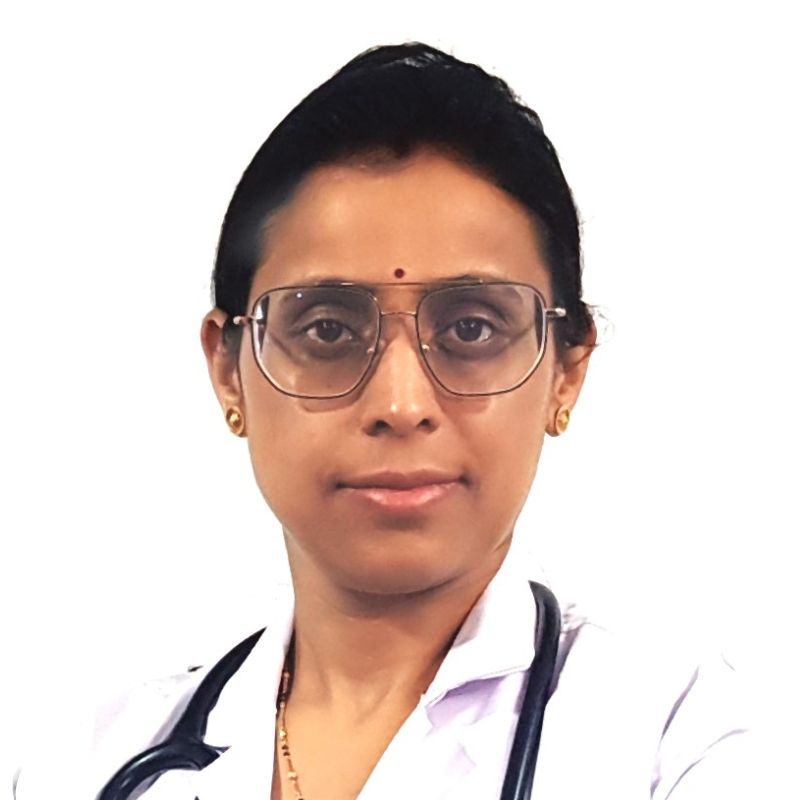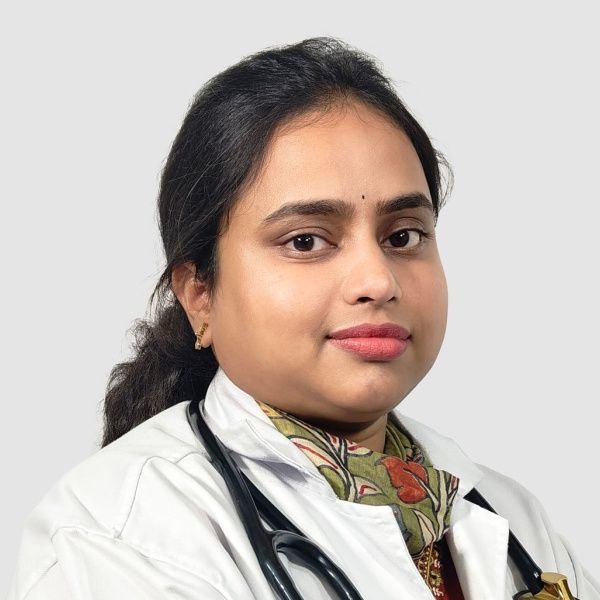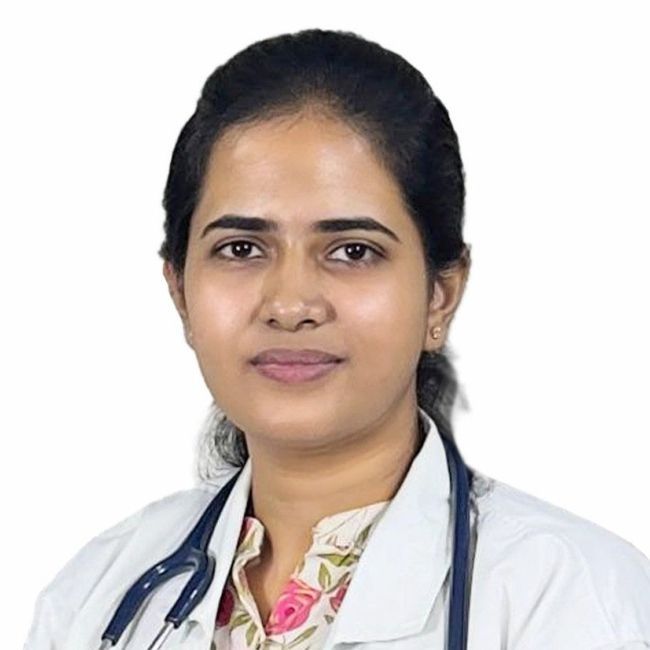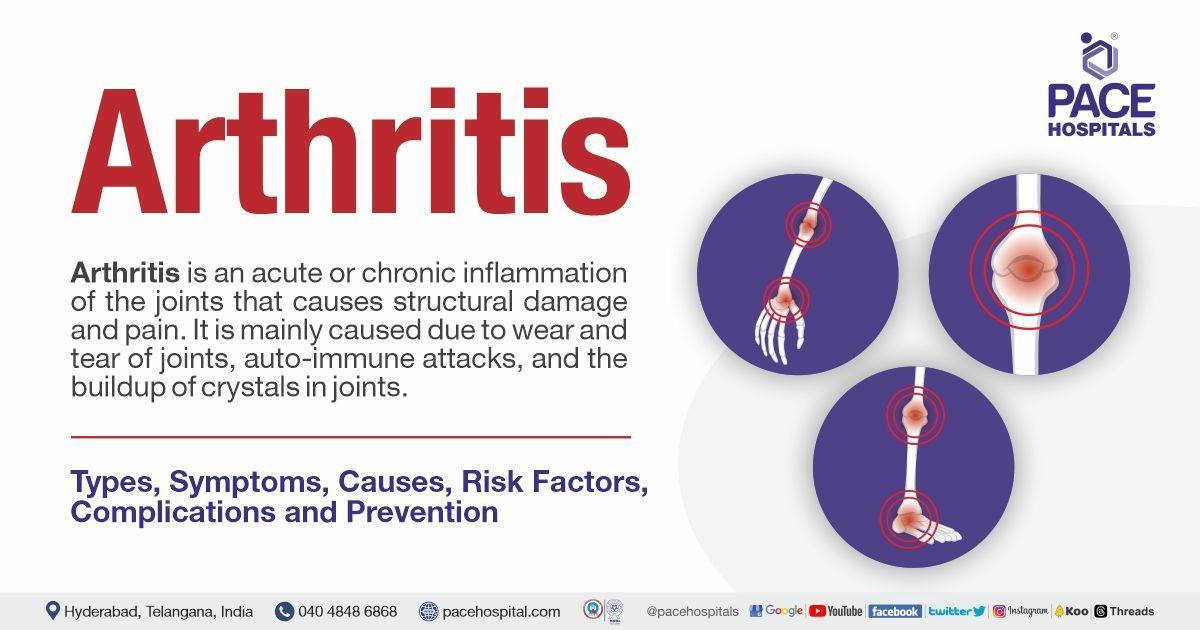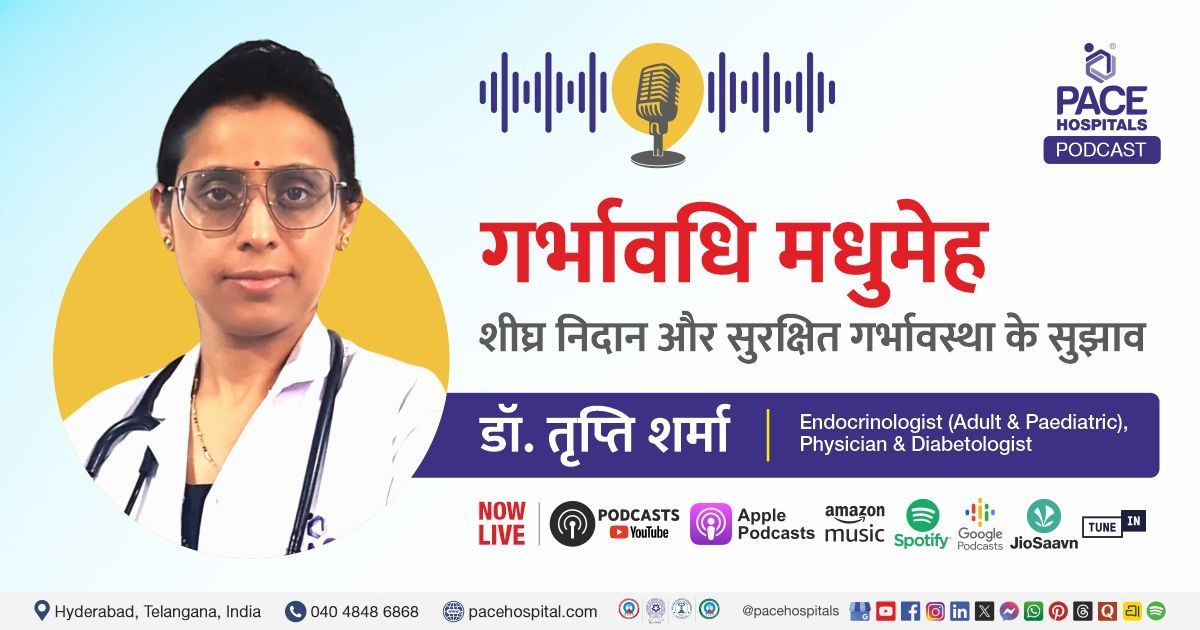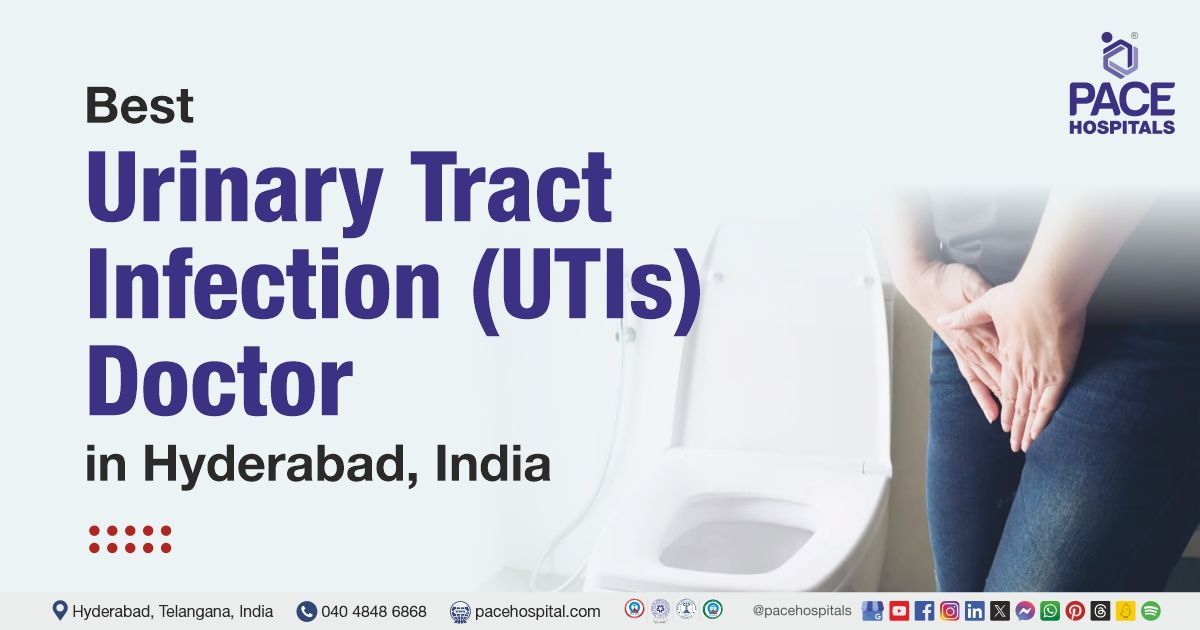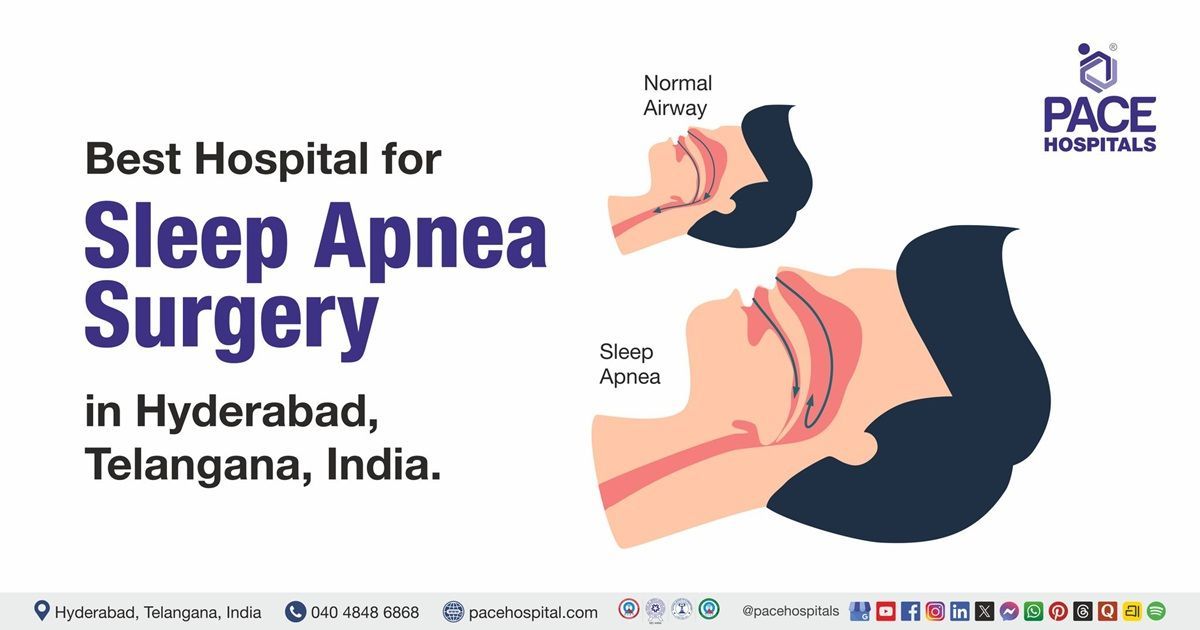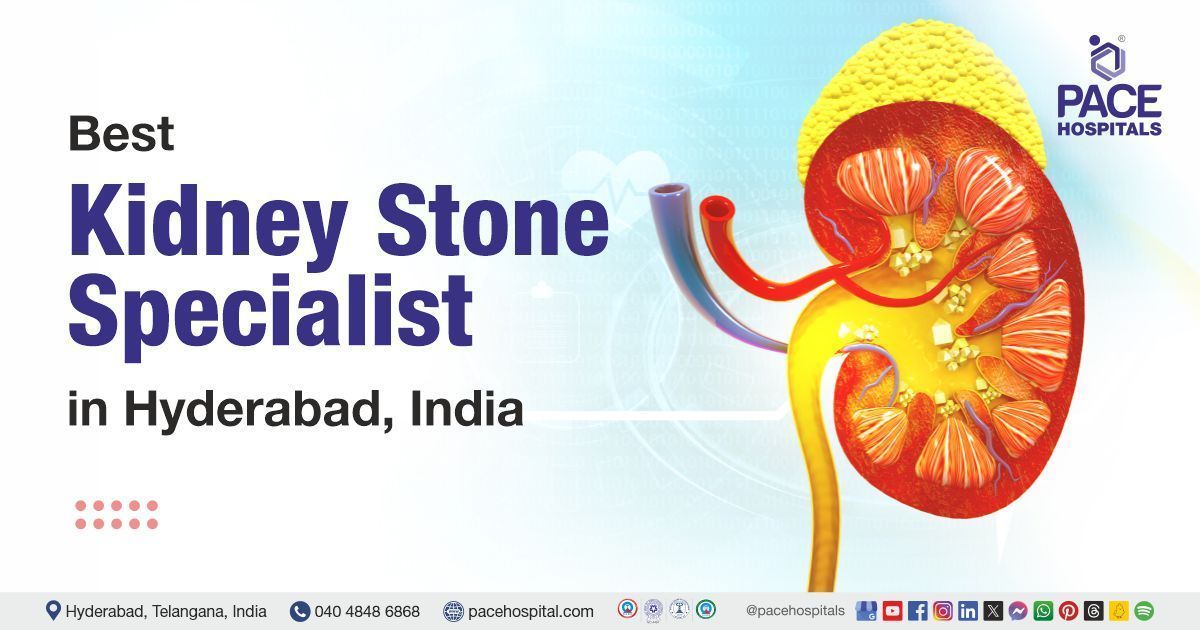Best Thyroid Specialist in Hyderabad for Thyroid Disease Treatment
✅ Recommended by 9,452 Happy Patients. Get hassle-free appointments with thyroid specialist doctor.
Dr. Tripti Sharma
MBBS, MD (General Medicine), DM (Endocrinology, Diabetes & Metabolism)
Experience : 14+ years
Endocrinologist (Adult & Paediatric), Physician & Diabetologist
Specialist
Diagnosing and treating various endocrinology-related health conditions such as thyroid disorders (hypothyroidism, hyperthyroidism, and goitre), diabetes (type 1 diabetes mellitus, type 2 diabetes mellitus, and gestational diabetes), adrenal disorders (Cushing’s syndrome and Addison’s disease), pituitary gland disorders (acromegaly, prolactinoma, growth hormone deficiency, etc.), infertility (male and female), hypertension, obesity, dyslipidaemia, osteoporosis, puberty and growth disorders, polycystic ovary syndrome, hypogonadism, menstrual and other hormonal disorders.
Expertise
Management of Fever of unknown origin, Management of Sepsis & Multiorgan failure, Diabetes mellitus, Hypertension, Thyroid Disorder, Pregnancy Induced Hypertension, Dyslipidemia & hyperlipidemia, Anaemia management, Weight loss & Fatigue Syndromes, HIV treatment, Lung diseases (Asthma, Empyemathorasis, Bronchiectasis Treatment, Interstitial Lung Disease Treatment), Allergy and Immunological Disorders, Anaemia and Blood Disorders, Rheumatology and Joint Related Disorders, COVID-19 / Swine Flu, Endocrinological Disorders, Cardiac problems, Liver & Kidney disorders, Infectious disease, Autoimmune disease, Haematological disorders, Malabsorption syndromes, Weight Reduction management, Diagnostic Dilemmas, Pyrexia of unknown origin (PUO)
Consultation Details
Languages Spoken: English, Hindi, Telugu
Timing: Mon to Sat - 9 AM to 5 PM
Location: PACE Hospitals, HITEC City
Dr. Mounika Jetti
MBBS, MD (General Medicine)
Experience : 9+ years
Consultant General Physician and Diabetologist
Specialist
Diabetes, Hypertension, Thyroid disorders, Obesity, Weight loss, Infectious diseases, Autoimmune diseases, Immunisation protocols, Anaemia, Cardiac and Renal issues and many other general conditions.
Expertise
Chronic disease management, Treatment of diabetes and its complications, Fever of unknown origin (FUO), thyroid disorders, dyslipidemia, tuberculosis, anaemia, asthma, obesity, COPD, lifestyle disorders, HIV and Its management, innovative treatment approaches and preventive healthcare strategies.
Consultation Details
Languages Spoken: English, Hindi, Telugu
Timing: Mon to Sat - 11 AM to 8 PM
Location: PACE Hospitals, HITEC City
Dr. Snigda Panuganti
MBBS, MD (General Medicine)
Experience : 7+ years
Consultant General Physician and Diabetologist
Specialist
Dr. Snigda Panuganti specializes in diagnosing and managing a wide range of acute and chronic health conditions, including:
- Diabetes & Lifestyle Diseases (Hypertension, Dyslipidemia, Obesity)
- Thyroid Disorders (Hypothyroidism, Hyperthyroidism)
- Electrolyte & Metabolic Disturbances
- Anaemia & Thrombocytopenia
- Chronic Kidney Disease (CKD) & Acute Kidney Injury (AKI)
- Heart Failure, Atrial Fibrillation & Deep Vein Thrombosis (DVT)
- Stroke Recovery & Geriatric Medicine
- Chest Infections, Pneumonia & Tuberculosis
- Tropical & Infectious Diseases (Dengue, Malaria)
- Gastrointestinal & Urinary Tract Infections
- GERD, Headaches & Fatigue Syndromes
- Seizure Disorders
- Fever of Unknown Origin (PUO)
- Multi-Organ Dysfunction & Critical Illness
- Sepsis & Systemic Infections
Expertise
With 7+ years of experience, Dr. Snigda Panuganti provides expert care in:
- Acute & Inpatient Medical Care
- Multimorbidity & Elderly Care Management
- Preventive Medicine & Adult Vaccination
- Critical Illness & Emergency Management
- Diagnostic Evaluation of Complex Cases
- Chronic Disease Management & Follow-Up Care
- Lifestyle & Weight Management Programs
- Patient Education & Health Counselling
Consultation Details
Languages Spoken: English, Hindi, Telugu
Timing: Mon to Sat - 10 AM to 7 PM
Location: PACE Hospitals, HITEC City
Dr. Sai Ramakrishna O
MBBS, MD (General Medicine)
Consultant General Physician & Diabetologist
Specialist
Diabetes, Hypertension, Thyroid Disorders, Fever management, Malabsorption syndromes, Headache & Migraines, Obesity, Autoimmune diseases, Anaemia and Blood Disorders, and Infectious diseases
Expertise
Management of Fever of unknown origin, Management of Diabetes mellitus, Hypertension, Sepsis & Multiorgan failure, Thyroid Disorder, Pregnancy Induced Hypertension, Anaemia management, Weight loss & Fatigue Syndromes, Dyslipidemia & hyperlipidemia, HIV treatment, Lung diseases (Asthma, Empyemathorasis, Bronchiectasis Treatment, Interstitial Lung Disease Treatment), Allergy and Immunological Disorders, Anaemia and Blood Disorders, Rheumatology and Joint Related Disorders, COVID-19 / Swine Flu, Endocrinological Disorders, Cardiac problems, Liver & Kidney disorders, Infectious disease, Autoimmune disease, Haematological disorders, Malabsorption syndromes, Weight Reduction management, Diagnostic Dilemmas, Pyrexia of unknown origin (PUO)
Consultation Details
Languages Spoken: English, Hindi, Telugu
Timing: Mon to Sat - 9 AM to 6 PM
Location: PACE Hospitals, Madinaguda
Best Thyroid Doctor in Hyderabad - Advanced Therapies for All Thyroid Disease and Disorders
PACE Hospitals is recognised for having the Best Thyroid Doctors in Hyderabad, India providing specialised care for patients with thyroid disorders, such as hyperthyroidism, hypothyroidism, goitre, thyroid nodules, and thyroiditis. We have a team of highly experienced thyroid specialists who focus on accurate diagnosis, personalised treatment, and long-term management to help patients maintain hormonal balance and overall health.
Every thyroid specialist doctor at PACE Hospitals is trained to use modern diagnostic tools, including thyroid function tests, ultrasound, and fine-needle aspiration biopsy, to identify the exact cause of thyroid problems. Based on the diagnosis, treatment may include medication, hormone therapy, or surgery, as needed. Our goal is to help patients regain normal thyroid function and prevent further complications.
PACE Hospitals is home to the best doctor for thyroid in Hyderabad, known for combining clinical excellence with a caring approach. Our specialists work alongside endocrinologists and radiologists to deliver comprehensive thyroid care under one roof. From diagnosis to follow-up, patients receive complete support and clear guidance at every stage of their treatment.
With years of trusted expertise, PACE Hospitals continues to be recognised for having the best thyroid specialist in Hyderabad, India. Through advanced technology, modern facilities, and a patient-first approach, we provide safe and effective thyroid treatments that help patients lead healthier, more confident lives.
Frequently Asked Questions (FAQs) on Thyroid
What are the risks of untreated thyroid disorder?
If thyroid disorders are left untreated, they can lead to some serious health issues which include heart disease (irregular heartbeat can lead to blood clots, stroke, heart failure), kidney disease, osteoporosis, fertility problems in women, goiter, myxedema, graves ophthalmopathy. It is always advisable to consult the best thyroid specialist in Hyderabad, India for timely diagnosis and management.
Can thyroid disorders affect fertility or pregnancy?
When the overactive thyroid gland (hyperthyroidism) produces excess thyroid hormone it may lead to complications which can affect both mother and baby such as early pregnancy loss, premature birth, low birth weight, preeclampsia (high blood pressure in pregnancy).
Underactive thyroid (hypothyroidism) can lead to abortions, risk of premature delivery intrauterine fetal death. Studies suggested that women with hypothyroidism have decreased fertility rate and even if they conceive the children will born with impaired IQ levels and neuropsychological issues. Women should seek care from a thyroid specialist doctor during pregnancy.
Can thyroid disorders be associated with other endocrine disorders?
Yes, thyroid disorder can be correlated with other endocrine disorders because of interlinked autoimmune nature of immune diseases. Endocrine gland releases hormones in serum that are transported throughout the body. Little disruption in the function of one or more of these glands can disrupt the overall balance of hormones in the body and lead to endocrine disorder. Patients with thyroid disorder are at increased risk of developing other hormone related endocrine issues like diabetes and should consult a thyroid specialist for monitoring.
What are the potential complications of untreated hypothyroidism?
When the underactive thyroid gland is not treated it leads to severe complications like increasing the risk of heart diseases (low levels of thyroxine causes high levels of cholesterol increasing risk of cardiovascular disease), goiter (abnormal swelling of thyroid gland forming a lump), myxedema coma. Hypothyroidism when not treated in pregnant women lead to complications such as miscarriage, birth defects, premature birth etc. It’s important to seek evaluation from a good thyroid doctor for proper treatment.
What are the different types of thyroid disorder?
Different types of thyroid disorder include hypothyroidism, hyperthyroidism, goiter (enlargement of thyroid gland), thyroid cancer, nodules (lump formation in thyroid gland), thyroiditis (swelling of the thyroid gland). These conditions can be managed effectively under the guidance of the
best thyroid doctor in Hyderabad, Telangana, India.
How is hypothyroidism different from hyperthyroidism?
Hyperthyroidism is a condition characterized by hyperactive thyroid gland that produces excess thyroid hormones whereas hypothyroidism is a condition where the underactive thyroid gland produces insufficient thyroid hormones. Both require evaluation by an
experienced thyroid doctor.
What symptoms should prompt one to see a thyroid specialist?
If you experience any of the following symptoms, it’s important to consult a thyroid specialist doctor for early diagnosis and treatment:
- Unexplained Weight Changes – Sudden weight gain or loss without changes in diet or activity.
- Fatigue & Weakness – Persistent tiredness, low energy levels, or muscle weakness.
- Neck Swelling or Lump – Visible swelling in the neck or a feeling of tightness.
- Hair Thinning or Hair Loss – Excessive hair fall or brittle hair.
- Heart Rate Changes – Rapid or slow heartbeat, palpitations, or irregular pulse.
- Mood Swings & Depression – Anxiety, nervousness, or unexplained mood changes.
- Menstrual Irregularities – Heavy, light, or irregular periods.
- Dry Skin & Brittle Nails – Skin becoming rough, dry, or itchy.
- Difficulty Tolerating Cold or Heat – Feeling too cold or too hot frequently.
- Hoarseness & Voice Changes – Persistent changes in voice or difficulty swallowing.
If you notice these symptoms, consult our
best thyroid doctor in Hyderabad, India at PACE Hospitals for expert diagnosis and treatment.
What are the signs of an overactive thyroid (hyperthyroidism)?
Symptoms of hyperthyroidism can include weight loss, feeling nervousness, irregular heartbeat, irritability, fatigue, nervousness, sweating, fatigue, difficulty sleeping, enlargement in neck (goiter). Consultation with a
leading thyroid doctor in Hyderabad, Telangana, India is recommended for accurate diagnosis.
What are the signs of an underactive thyroid (hypothyroidism)?
Symptoms of hypothyroidism include coarse, dry skin, constipation, depression, fatigue, weight gain, joint and muscle pain, dry skin, heavy or irregular menses, and a slow heart rate. Patients should seek evaluation by a
top thyroid specialist in Hyderabad at PACE Hospitals for proper management.
How do symptoms of thyroid disorders differ between men and women?
Symptoms of thyroid disorder in males tend to be similar as compared to female. However, there are differences on how this disorder affects male and female reproductive system etc. With abnormal increase or decrease in thyroid hormone it can affect other hormones like male sex hormone (testosterone) and female sex hormones (estrogen). In males it can cause low libido, gynecomastia (enlarged breast in males), erectile dysfunction, testicular atrophy, premature ejaculations. In women thyroid disorder causes irregular menses, complications in pregnancy etc. It’s best to seek guidance from
famous thyroid doctors in Hyderabad at PACE Hospitals for appropriate treatment.
Is thyroid surgery necessary for treating certain conditions?
An endocrinologist (thyroid specialist) may recommend thyroid surgery for the following conditions:
- If a nodule or lump is detected
- If cancer is diagnosed
- For treating goiter that is causing compression of trachea, causing difficulty in swallowing
- For a toxic nodule, toxic multinodular goiter or graves disease.
Such procedures are usually performed by the
best thyroid surgeon with experience in endocrine surgery.
What are thyroid nodules and how are they treated?
Thyroid nodule refers to a lump formation within the thyroid gland because of unexplained and abnormal cell growth of thyroid gland. Cancerous thyroid nodules are often removed by surgical treatment by
experienced thyroid surgeons. Non-cancerous thyroid nodules are curable and can be treated chemotherapeutically.
How does Iodine deficiency impact thyroid health?
Despite an increase in thyroid activity, iodine concentrations are low to enable production of thyroid hormones. Severe iodine causes goiter and hypothyroidism. Increased activity of thyroid can compensate for decreased or low iodine uptake and maintain euthyroidism during mild to moderate insulin deficiency. Evaluation by a
thyroid special doctor can help manage iodine-related thyroid issues effectively.
Can thyroid disorders be triggered by autoimmune diseases?
Yes, thyroid disorders can be triggered or caused by an autoimmune disease. Autoimmune thyroid diseases (AITD) are common autoimmune diseases followed by grave’s disease and Hashimoto Thyroiditis. Clinical manifestations are developed by reflecting the loss of immunological intolerance and share presence of cell and humoral immune response against antigens from thyroid with reactive infiltration of T cells and B cells. It’s recommended to consult the
best doctor for thyroid treatment in Hyderabad at PACE Hospitals for proper care.
Are there any risks for developing thyroid cancer with thyroid disorder?
Yes, the following are the risk factors for developing cancer having a benign non-cancerous thyroid condition, family history of thyroid cancer, previous history of benign (non-cancerous) breast condition, exposure to radiation therapy for prior treatment. Timely screening by the best thyroid specialist in Hyderabad, India helps in early detection.
Can thyroid disorder cause eye problems or vision changes?
Yes, thyroid disorder affects the eye and causes vision problems. Hyperthyroidism leads to a condition known as Grave’s ophthalmopathy or thyroid eye disease characterized by swelling around the eyes causing the eyes to bulge out. Eyes become gritty, this is often mild and causes double vision.
Patients should be evaluated by a
thyroid specialist doctor for management of thyroid-related eye conditions.
What are the tests to diagnose thyroid disorder?
Following are the thyroid function tests performed to diagnose thyroid disorder.
- TSH (Thyroid Stimulating Hormone): A high thyroid stimulating hormone (TSH) level indicates hypothyroidism (thyroid is not producing enough hormone therefore pituitary gland produces TSH and releases into blood. A low TSH level indicates hyperthyroidism (thyroid gland producing excess hormones thereby pituitary gland stops producing and releasing TSH in blood).
- T4 test: An elevated blood level of T4 indicates hyperthyroidism whereas a low T4 indicates hypothyroidism.
- T3 test: T3 test is performed to confirm the diagnosis whether the patient has hyperthyroidism when the T4 values are obtained normal. Sometimes the value of T4 is normal whereas the T3 value is very high so both T3 and T4 are performed.
These tests should be reviewed by the best doctor for thyroid treatment in Hyderabad at PACE Hospitals for accurate interpretation.
How does a fine needle aspiration (FNA) biopsy help in diagnosing thyroid nodules?
Fine needle aspiration (FNA) biopsy is an accurate diagnostic test routinely used in initial evaluation of nodular thyroid disease. Follow-up surveillance of thyroid cancer patients is performed by Fine Needle Aspiration (FNA) with ultrasonographic guidelines (US - FNA). This is performed with a fine needle (22 to 27 Gauge), the cells or tissues are obtained by aspiration technique, the thyroid gland is palpated carefully, and nodules are identified under sonographic guidance. It’s best done under the supervision of leading thyroid doctors in Hyderabad, Telangana, India.
Are there any specific markers that indicate autoimmune thyroid disease?
Autoimmune thyroid disease (AITD) is indicated by the presence of the following autoantibodies like Thyroglobulin antibodies (TgAb), Thyroid peroxidase antibodies (TPOAb), Thyroid stimulating hormone receptor antibodies (TRAb). Autoimmune thyroid disease (AITD) is also detected by genetic markers like Human leukocyte antigen (HLA), ABO blood group, Rh blood group. Other markers like thyroid stimulating hormone (TSH) and free T4 and total T4 levels are performed to indicate autoimmune thyroid disease.
Testing under a
thyroid specialist ensures accurate diagnosis and management.
What are the treatments for hyperthyroidism and hypothyroidism?
Hyperthyroidism is generally treated with medications, radioiodine therapy or by surgery.
- Treatment of hyperthyroidism includes antithyroid medications and betablockers. Treatment with antithyroid is the simplest and a permanent cure. Beta blockers are also included in the treatment of hyperthyroidism, they are symptomatic treatment.
- Radio-iodine therapy includes taking radioactive iodine orally as a capsule or a liquid, this radioactive iodine destroys the cells of thyroid gland. This is a common and effective treatment.
- Surgery is performed in rare cases. Patients who developed goiter or pregnant women who cannot take antithyroid medications opt for surgery where part or most of the thyroid gland is resected out.
Treatment of hypothyroidism includes hormone replacement therapy followed by regular monitoring of hormone levels. A low dose of hormone is recommended initially, after regular monitoring the serum levels, the correct dose of hormone replace met therapy is given. Proper guidance should be taken from the best doctor for thyroid treatment in Hyderabad at PACE Hospitals.
When is surgery the best option for thyroid disorder?
Surgery is indicated mainly for treating grave disease, to treat benign and malignant tumors, to remove goiter and to remove large goiters when they cause respiratory difficulties. Surgical management should be done by
famous thyroid doctors in Hyderabad at PACE Hospitals for best outcomes.
What our patients have to say
Experts Perspective
Related Articles
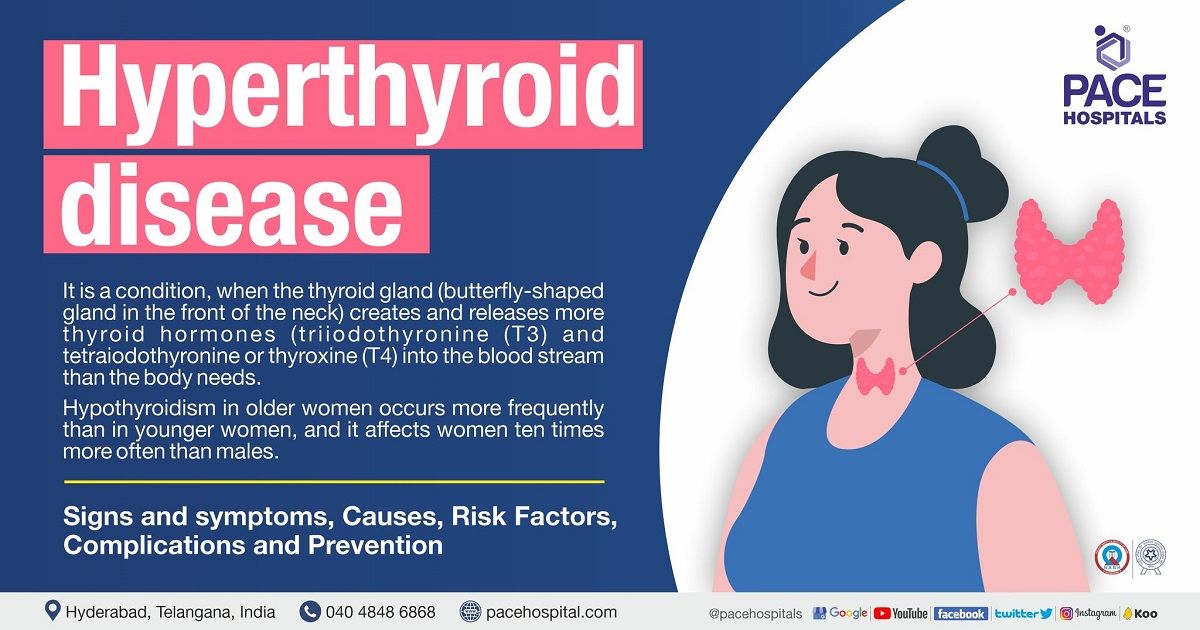
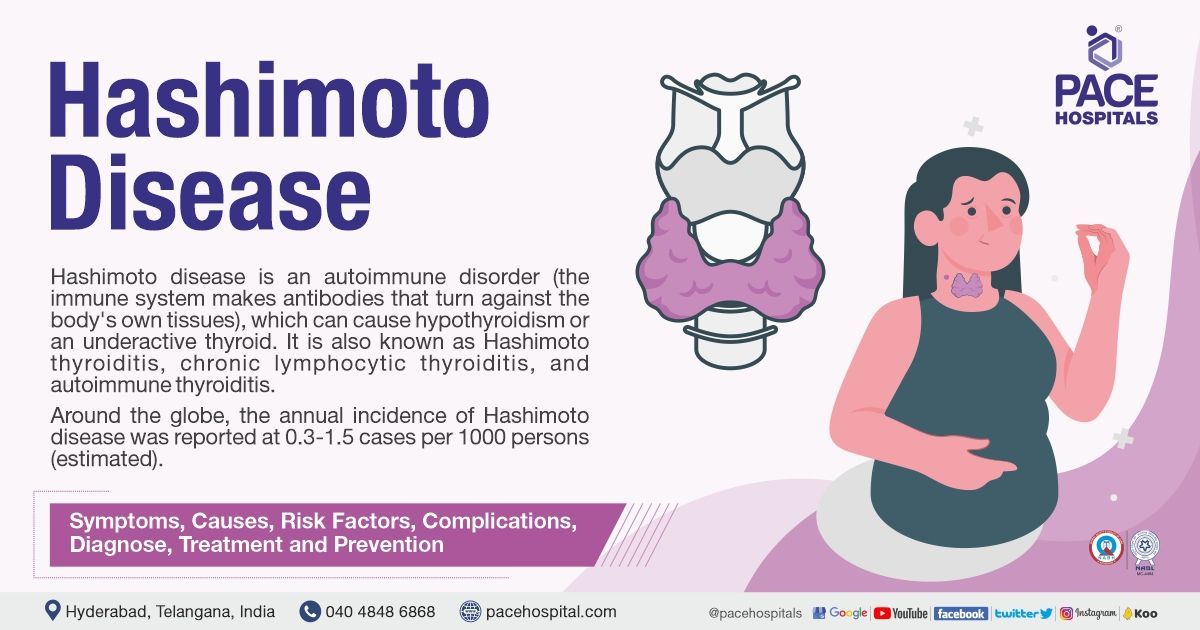
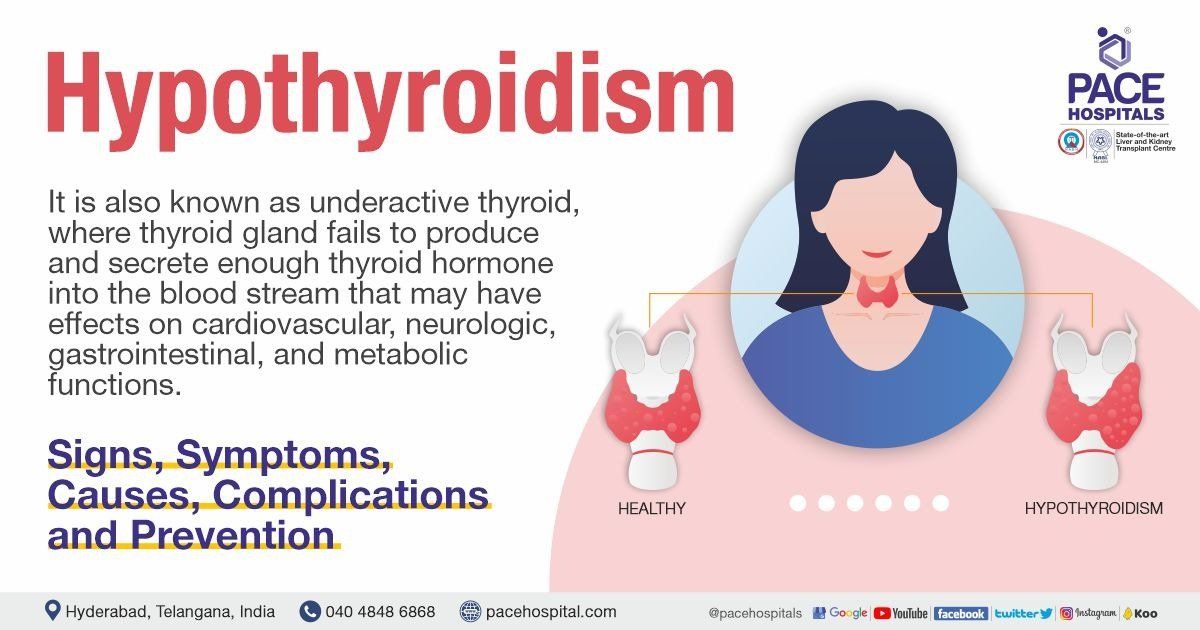
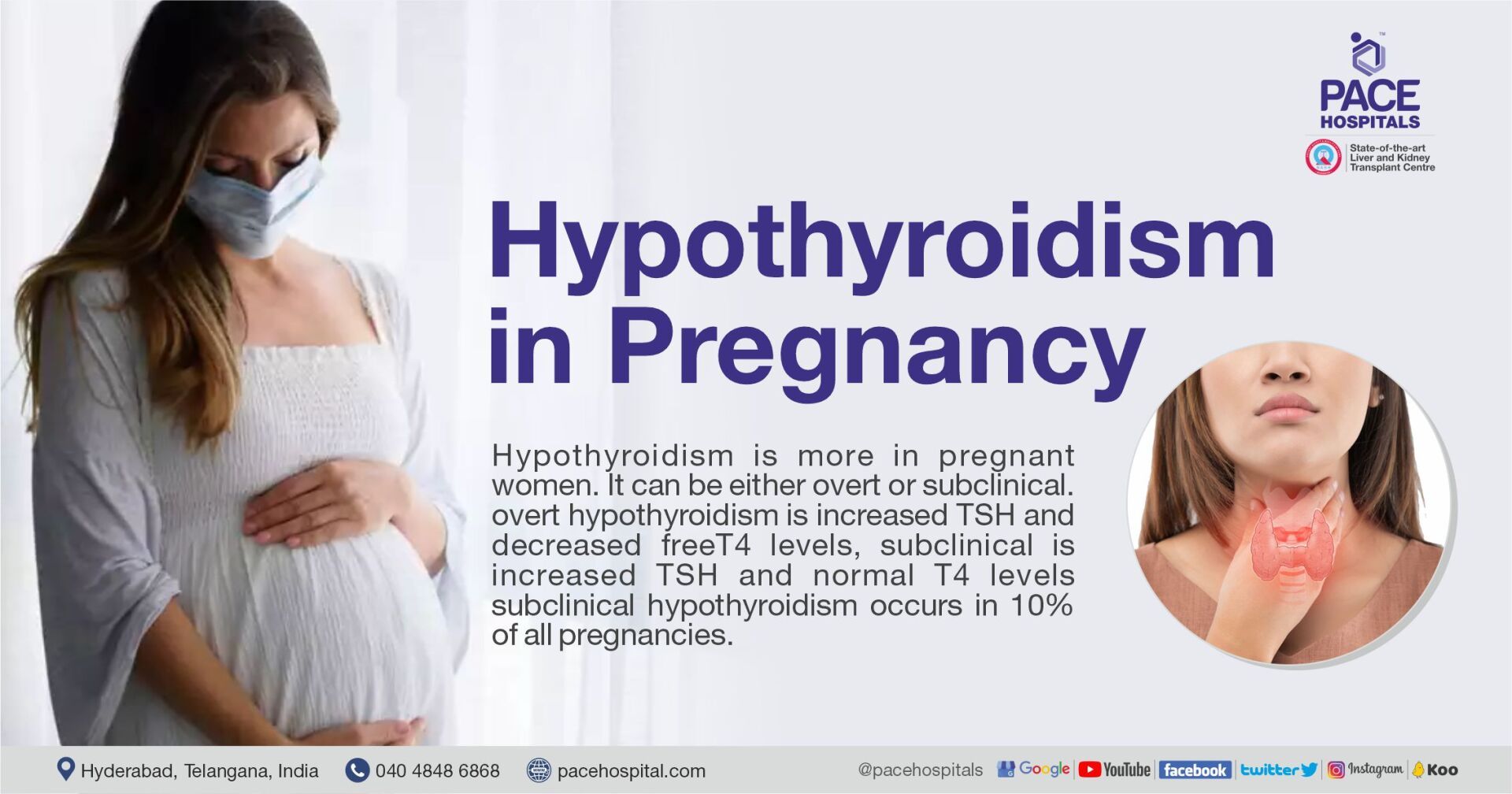
Why choose PACE Hospitals?
- A Multi-Super Speciality Hospital.
- NABH, NABL, NBE & NABH - Nursing Excellence accreditation.
- State-of-the-art Liver and Kidney transplant centre.
- Empanelled with all TPAs for smooth cashless benefits.
- Centralized HIMS (Hospital Information System).
- Computerized health records available via website.
- Minimum waiting time for Inpatient and Outpatient.
- Round-the-clock guidance from highly qualified super specialist doctors, surgeons and physicians.
- Standardization of ethical medical care.
- 24X7 Outpatient & Inpatient Pharmacy Services.
- State-of-the-art operation theaters.
- Intensive Care Units (Surgical and Medical) with ISO-9001 accreditation.
Share on
Request an appointment
Fill in the appointment form or call us instantly to book a confirmed appointment with our super specialist at 04048486868

